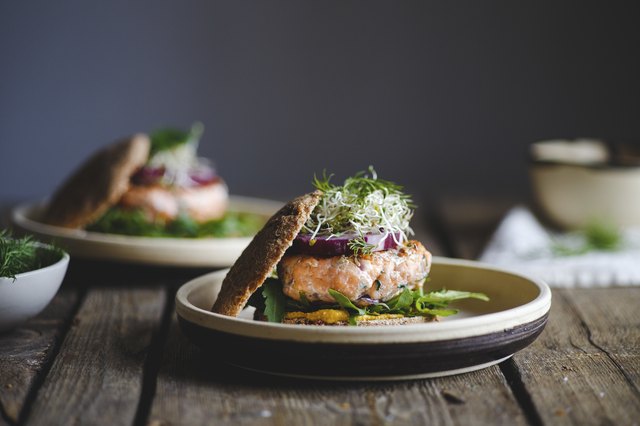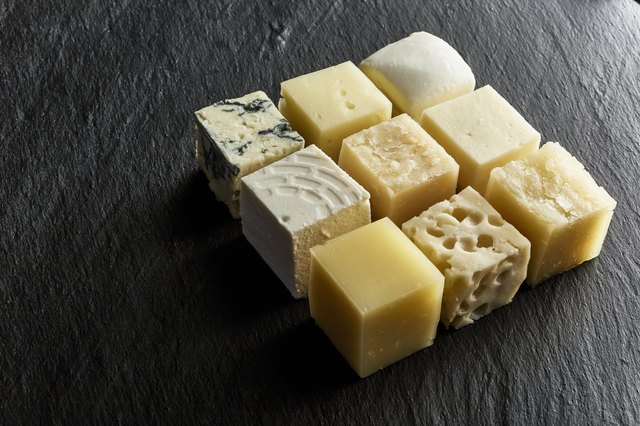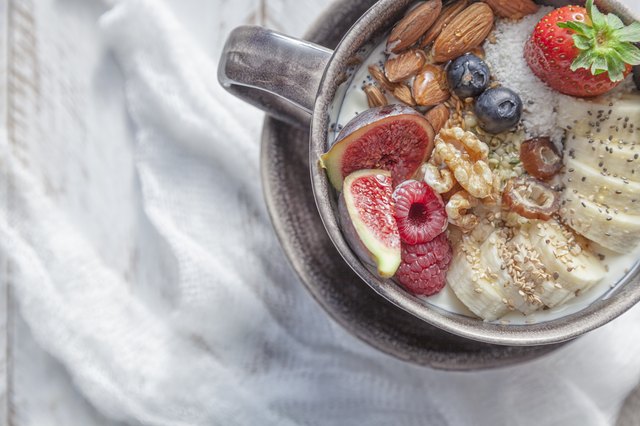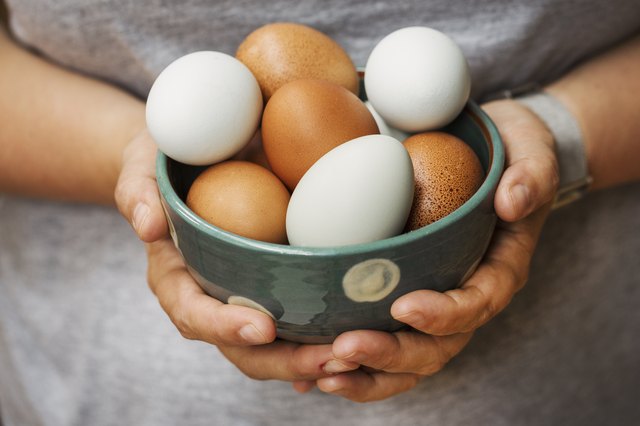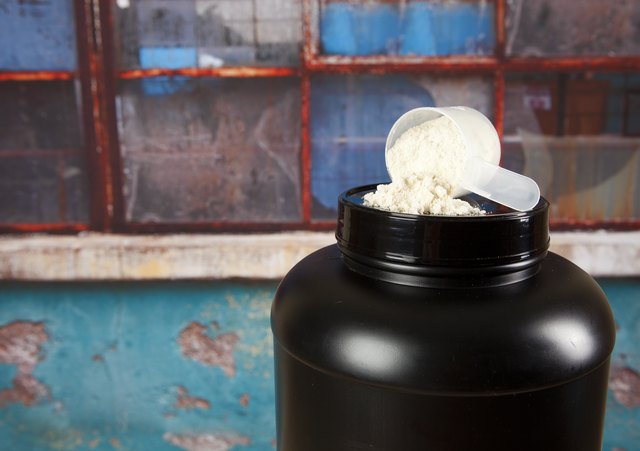If you want to exercise your muscles, you need to eat protein. But this is not always the case of "more is better". If you eat too much protein, you will start to store extra calories as fat; if you eat too little, you will not be able to promote muscle growth and recovery. " The proteins needed to build muscle vary, but it's usually recommended to weigh between 1.2 and 1.9 grams per kilogram, "said Heather mangieri, a sports nutritionist in Pittsburgh, Pennsylvania.
spread your protein intake over the course of the day, aiming for 20 to 30 grams of protein per meal, including protein from snacks, mangieri said. In this way, you can "optimize muscle protein synthesis and improve performance". How to get enough protein without damaging the budget? Four top sports nutrition experts share their favorite source of cheap, high-quality protein.
Credit: Michael Svoboda / E + / gettyimages Advertisements if you think beef jerky is a chopped and reshaped stick sold at a gas station, think again. The traditional whole-body muscle dryness has come back again, sometimes mixed with fruit. The ancient Incas called it "magic spell" (it sounds like dry, doesn't it?) At present, many varieties do not contain nitrate, monosodium glutamate, artificial ingredients and preservatives. ACSM's researcher Jim White recommends about 10 grams of protein per ounce, "beef jerky is a great post exercise snack," plus an apple or a handful of berries, a sports physiologist and spokesperson for the school of nutrition and nutrition. protein: 10g / oz may look small, but sardines contain 14 grams of protein in two ounces. These tiny nutritional drivers are also important sources of omega-3 fatty acids, which are rich in selenium and vitamin B-12, as well as calcium, niacin and phosphorus. Jim White suggested eating directly from cans, eating in salads, or eating whole wheat bread in sardine salad sandwiches. The Monterey Bay Aquarium recommends buying sardines and Seine fishing in the United States and Canada to avoid the overfishing of sardines in the Mediterranean Sea in the Atlantic. protein: 14g per two ounces (depending on brand and variety) Credit: foodcollection / foodcollection / gettyimages although you may think that animal derived proteins are better than plant-derived proteins, Heather mangiri, RDN, said, "studies have shown that plant and animal derived proteins appear to be equally effective in increasing protein synthesis in muscle after exercise." She recommends adding beans to the diet after exercise because beans are a mixture of carbohydrates and protein. In addition, dried beans are a huge savings! Cook a lot of food at the weekend and add them to food and snacks in a week to save time: put some or all of the meat on a plate with beans, sprinkle bean flaps on your stir fry, mash black beans for tortillas, add chickpeas to salads, or mix a simple bean salad into a variety of rinse canned beans and bell peppers. Onion and parsley, mixed with Italian salad dressing, refrigerated for a few hours. Protein: 7g / half cup, cooked. correlation: 10 healthy and rich chili recipes. Credit: westin61 / gettyimages protein: 14g / half cup "it's not bad for tuna," said Dr. Christopher Moore, an industry consultant and nutrition spokesman. "But salmon provide the same amount of protein, or even more omega-3 fatty acids, without worrying about too much mercury." Often overlooked salmon cans contain up to 20 grams of protein in a three ounce serving, plus 18% calcium, which is important for muscle function and bone health. One of Moore's favorite ways to eat canned salmon is to "mix it with solid granular mustard and add it to half avocado." You can turn it into a salmon burger and toss it on a salad, or you can make a salmon salad sandwich with chopped celery, a little mayonnaise, chopped red onions, sliced tomatoes and romaine lettuce and put it on a whole wheat pumpkin bread. Protein: 20 g / 3 oz. 6. Snack cheese is not only suitable for children. To maximize your protein intake per ounce, choose from Parmesan, Monterey Jack, mozarella, Switzerland, plolon, cheddar, port salutor or calbe. Now cheese has become a very convenient snack, because many companies have their own characteristics. A single packaged food. Christopher Mohr, a consultant at babybel, especially liked their Mini Cheese wheels: "each one contains at least 4 grams of protein, which is an easy to carry protein source." But don't put pre divided cheese in the snack position. They are also a simple way to add protein to your diet. " I usually eat two or three little babies at a time to supplement the rest of the food, "said Moore." protein: 14 grams per two ounces (depending on the type) Advertisements Credit: Maurizio cigognetti / the image bank / gettyimages all yoghurtIt contains protein, but Greek yoghurt varieties have more than twice the protein content of traditional yoghurt, says heath mangieri of RDN. She added that because the main protein in yogurt is slow digesting casein, "it's the best choice for a snack at noon or at night when you may not have food for a few hours." Greek yogurt is really versatile. You can make a traditional fruit and nut frozen cake, use it instead of the sour cream dipped in vegetables, and then add it to muffins, pancakes, instant bread and smoothies. Soak the fruit in Greek yoghurt and freeze it to get a refreshing effect. Mangieri recommends buying two pounds of yogurt to save money (and make sure you never run out!) protein: 17g per 6oz container (depending on brand) Credit: mccart777 / torque / gettyimages the dietary Steering Committee (composed of nutrition scientists) recently recommended a daily limit (300 mg) for cholesterol reduction, although the limit is still being implemented. Some people are sensitive to cholesterol (it may be people with high total cholesterol and LDL cholesterol, or diabetics), which will improve their cholesterol level, but this proportion is very small, so there is no need for such a large limit. protein: 6G per large egg has a good reason for many people to like whey protein. " It is a high-quality, nutritious and comprehensive protein that can be quickly digested and absorbed. It also contains leucine, an amino acid responsible for muscle growth. Protein powder, like all supplements, is not regulated by the U.S. Food and drug administration, which means you can't be sure what you get on the label. To reduce your risk of exposure to toxic ingredients, Alissa Rumsey, RD recommends that you choose an organic variety of forage protein, "and limit your intake to one serving per day. If organic protein powder is too expensive, or you can't find a brand you trust, Rumsey says the best solution is to get protein from whole foods and "rely on powder as the last resort." protein: 20g (25g) per scoop, providing Advertisements 1. Beef jerky

2. Sardines
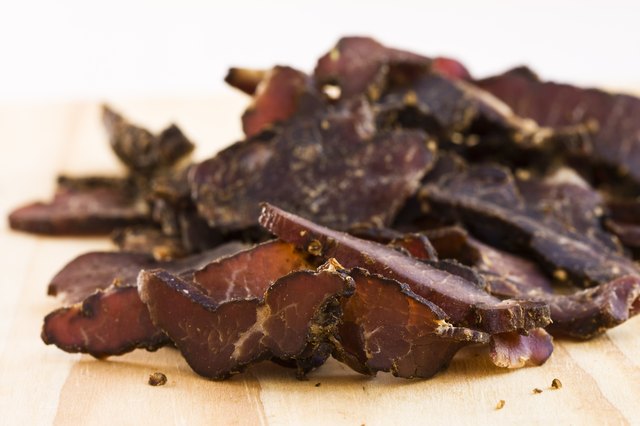
3. Beans
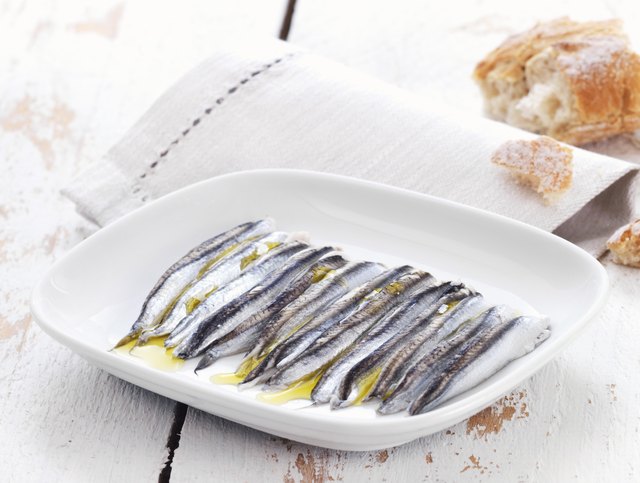
4. Eating a simple white cheese snack before bedtime can help you repair muscle damage during sleep. Dr. Jim White explained that white cheese contains a protein called casein, which slowly digests over time. Because it stays in the human body longer than proteins digested rapidly such as whey, it is very suitable for fasting state such as sleep. White cheese is also an important source of leucine. According to a study published in the Journal of nutrition in 2006, it is an essential amino acid to activate protein synthesis and muscle growth. Dr Alissa Rumsey, a spokesman for CSCs and the school of nutrition and nutrition, said no supplements. " There is no convincing evidence that leucine supplements contribute to muscle development. And you don't need them - a full-scale diet with enough protein can provide enough leucine. "
5. Canned salmon
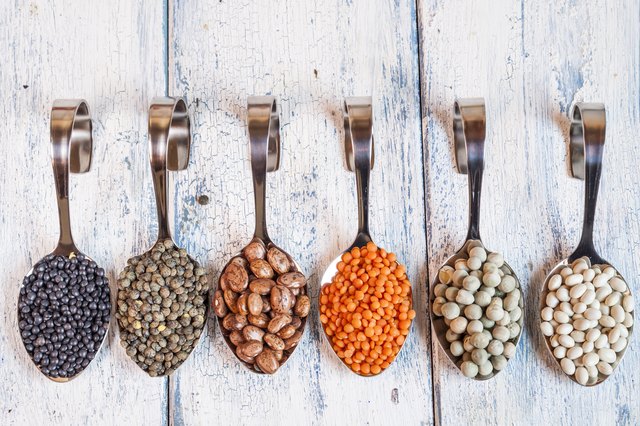
7. Greek yoghurt
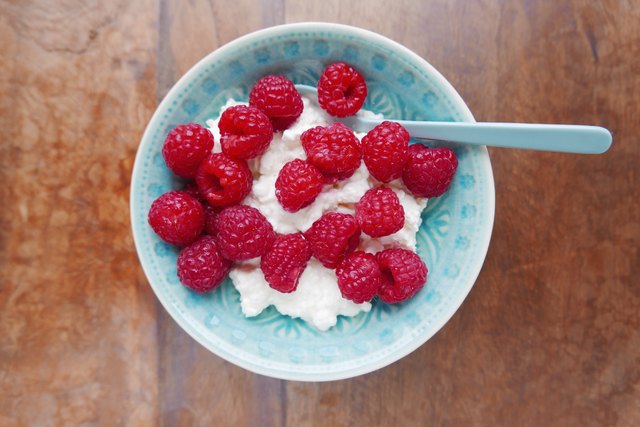
8. Eggs contain six grams of high-quality protein, about 21 cents per egg. "They are also one of the cheapest ways to get protein," says Heather mangieri of RDN. She often recommends eggs to athletes because they are versatile and easy to carry. Although eggs have always been a typical representative of high cholesterol, saturated fat and trans fat have a greater impact on "bad" LDL cholesterol levels than dietary cholesterol.
9. Whey protein
